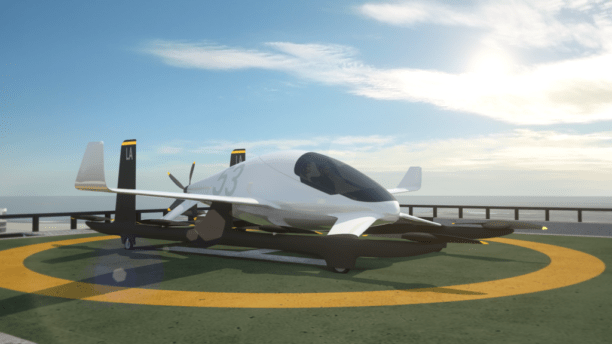
The tidal wave of digital disruption that has swamped media industries is beginning to be felt in transportation. A rapidly developing ecosystem of sensors, AI, and alternative energy systems is fueling innovation among start ups and established firms alike. Last week Boeing announced plans to acquire Aurora Flight Sciences Corporation, a developer and manufacturer of advanced aerospace platforms. Aurora has a strong reputation for innovating autonomous systems technologies to enable advanced robotic aircraft for future aerospace applications and vehicles.
“The combined strength and innovation of our teams will advance the development of autonomy for our commercial and military systems,” said Greg Hyslop, chief technology officer and senior vice president of Boeing Engineering, Test & Technology. “Together, these talented teams will open new markets with transformational technologies.”
In a statement Aurora said it “has designed, produced and flown more than 30 unmanned air vehicles since the company was founded in 1989.” They have collaborated with Boeing on the rapid prototyping of innovative aircraft for both military and commercial applications.
“Since its inception, Aurora has been focused on the development of innovative aircraft that leverage autonomy to make aircraft smarter,” said John Langford, Aurora founder and chief executive officer. “As an integral part of Boeing, our pioneered technologies of long-endurance aircraft, robotic co-pilots, and autonomous electric VTOLs will be transitioned into world-class products for the global infrastructure.”
Why the deal makes sense
The deal makes sense for Boeing for several reasons. Aurora has substantial contracts with the defense department (e.g. last August The US Air Force awarded a $499 million contract). They also amplify Boeing’s R&D in UAV. Specifically in the area of unmanned passenger transportation. In April of this year Aurora was chosen by Uber to be a partner in developing electric vertical takeoff and landing (eVTOL) aircraft for the Uber Elevate Network. The announcement was made at Uber’s Elevate Summit in Dallas, Texas.
“Uber is taking a big step forward toward making the world’s first VTOL network a reality and our partnership with Aurora Flight Sciences will help get us off the ground,” said Mark Moore, Director of Engineering for Uber. “The Elevate VTOL network will help improve urban mobility around the world and transform the way we travel.”
Aurora’s eVTOL concept grew out of its work for the U.S. Department of Defense and other autonomous aircraft the company has developed over the years.
“The Uber Elevate mission is all about low noise, high reliability, and low cost,” said Aurora CEO John Langford. “By drawing on our nearly 30 years of successful autonomy and robotic programs, Aurora is well positioned to deliver on this urban solution. We have already built and flown the first proof-of-concept aircraft and we’re excited to partner with Uber in accelerating the eVTOL initiative.”
Unmanned transportation is coming to both the automobile and aircraft industries. With this acquisition Boeing is looking to keep pace with startups such as Velocopter, which recently conducted a test flight in Dubai, and Passenger Drone as well as large aerospace firms such as Airbus which announced the Airbus Popup concept earlier this year.
Here is a promotional video of the Aurora eVTOL
The Specs
Infrastructure
- Aurora’s eVTOL aircraft will provide on-demand transportation to minimize long commutes due to heavy traffic and urbanization in populated areas.
- The infrastructure plan includes urban “vertiports” for passenger boarding and vehicle servicing.
- eVTOL aircraft will operate a “hub-to-hub” service between designated vertiports.
- The first test bed flights are scheduled to begin in 2020 in Dallas, Texas, USA and Dubai, The United Arab Emirates.
Operational Overview
- The eVTOL aircraft includes eight lift rotors for vertical takeoff and cruise propeller and wing to transition to high-speed forward cruise.
- At destination hub, the aircraft transitions back to rotor-borne flight for vertical landing.
- Fully electric operation decreases or eliminates emissions and noise pollution for a quieter flight.
- While initially operated with a safety pilot, the eVTOL aircraft is designed for fully autonomous operations.
- The flight capability for eVTOL aircraft is three times more efficient than a multi-copter aircraft.
Capabilities
- The eVTOL will be used for short-haul transport of passengers or cargo.
- Current configuration allows for two passengers including the pilot plus luggage.
- Offerings will include specific configuration options to address mission requirements for civil and military operations.
Frank Schroth is editor in chief of DroneLife, the authoritative source for news and analysis on the drone industry: it’s people, products, trends, and events.
Email Frank
TWITTER:@fschroth







[…] also acquired Aurora Flight Sciences Corporation – a company with “a strong reputation for innovating autonomous systems technologies to enable […]